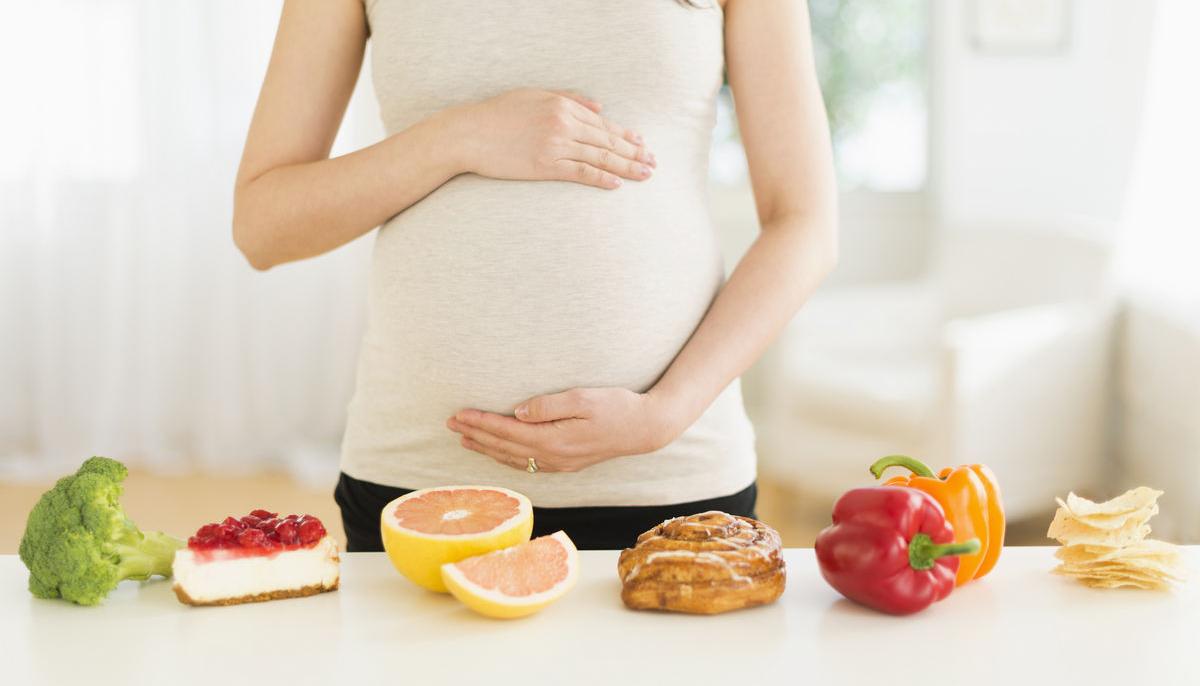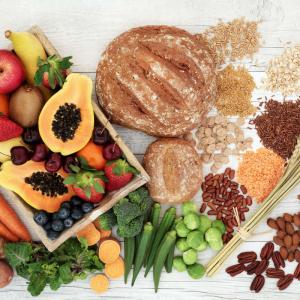Body weight and pregnancy
It is recommended that the mother monitor her weight, which should not increase by more than 10-15 kg until the end of the pregnancy. Therefore, it is easy to understand that the classic phrase "I'm pregnant, I have to eat twice", has absolutely no scientific basis, but is simply a myth that needs to be dismantled.
Excessive weight gain is often the cause of complications in the mother (hypertension, diabetes, etc.) and fetal (growth and metabolic defects), which lead to the possible occurrence of more serious conditions.
For this reason, it is vital that the mother has a balanced diet and a control over her body weight, avoiding hypercaloric foods (snacks, fried foods) and very spicy foods.
It is not impossible to change your "bad habits", it only takes a little will.
Necessary in pregnancy by food groups
The table below is useful for learning more about serving sizes for each food group.
Your doctor or nutritionist can provide you with additional, personalized information.
Details about the daily portion:
Milk products
To reach 1000 mg (0.035oz) of calcium obtained from dairy products, you should eat 4-5 servings a day. One serving is the equivalent of:
● a cup of milk
● 30 grams (1oz) of cheese
● 200 grams (7oz) of yogurt
● 100 grams (3.5oz) of cottage cheese
Proteins
Choose 2-3 portions per day, or a total of 250 grams (8.8oz), one portion meaning:
● 100 grams (3.5oz) of meat - beef, chicken, turkey, pork, lamb, fish (avoid large ocean fish) or other lean meats
● 2 eggs
Carbohydrate
It is recommended up to 10 servings a day, one serving meaning:
● a slice of bread, half a bun, half a pretzel
● 50g (1.7oz) cereals, pasta, rice
Fruits
3-4 portions per day are recommended, one portion meaning:
● a medium fruit (150g - 5.3oz) or 200 ml of natural fruit juice - choose juices without sweeteners
Preferably fruits rich in vitamin C - citrus fruits, apples, strawberries, cherries
Vegetables
4-5 portions per day are recommended, one portion meaning:
● 200 grams (7oz) of raw vegetables or 100 grams (3.5oz) of cooked vegetables;
Preferably vegetables rich in vitamin C - tomato, lettuce, broccoli, cabbage
Food hygiene and precautions
In order to prevent infections during pregnancy, there are some safety and food hygiene rules that must be followed:
- avoid fish and raw meat with blood (tartar, barbecue, sushi)
- avoid sausages and charcuterie (salami, ham)
- drink only pasteurized milk, not raw
- consume only boiled eggs, not raw (mayonnaise, uncooked creams, ice cream)
- wash the fruits and vegetables well
- wash your hands often
- avoid soft, moldy, unpasteurized cheeses
- avoid vegetable sprouts, prepackaged salads
Physical activity
Any pregnant woman must remain active as long as there are no problems, when she gets tired she must rest, sleep enough (8-9 hours/night), ask for help with household chores that require lifting weights, pushing or pulling.
A pregnant woman must exercise moderately daily, between 150-300 minutes per week, consisting of walking, swimming, pregnant gymnastics, pilates.
Pregnant women must avoid intense physical exertion without the doctor's consent because there is a risk of accidents due to ligament laxity from pregnancy or trauma.







